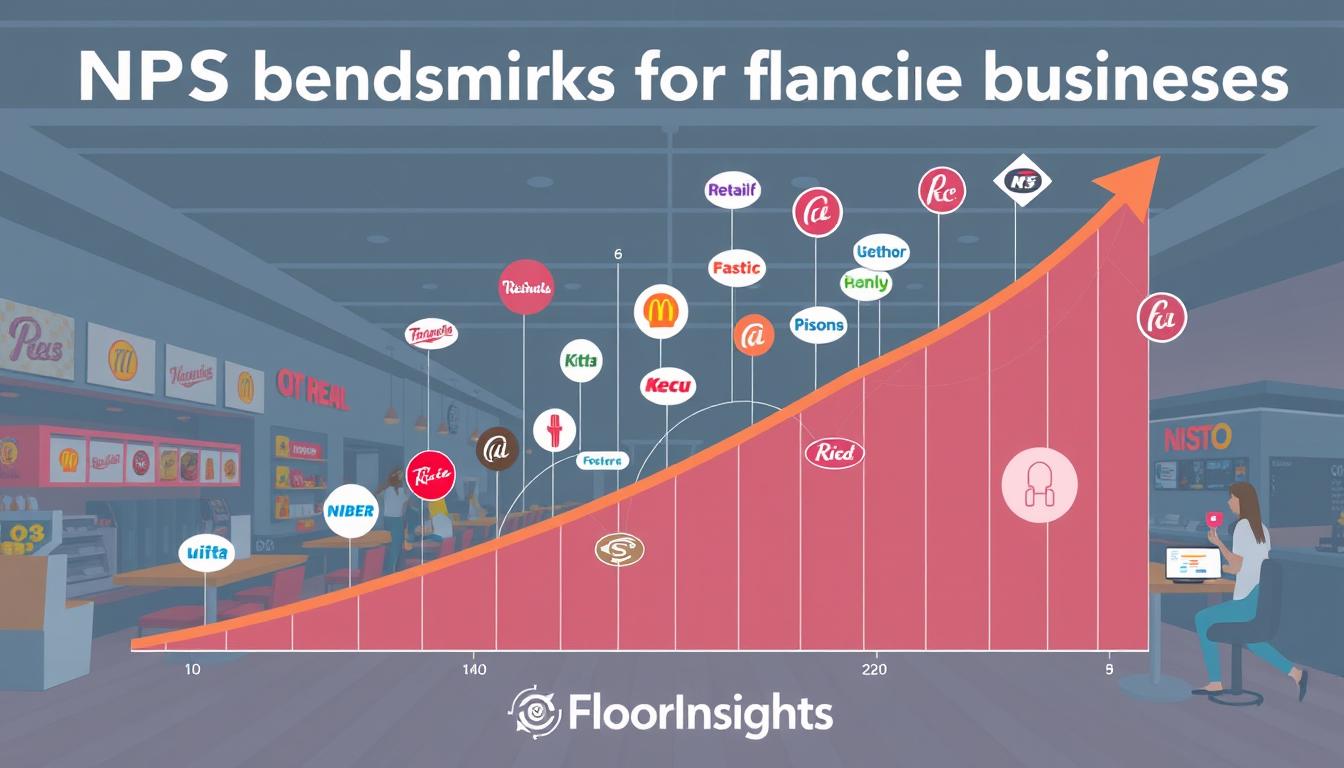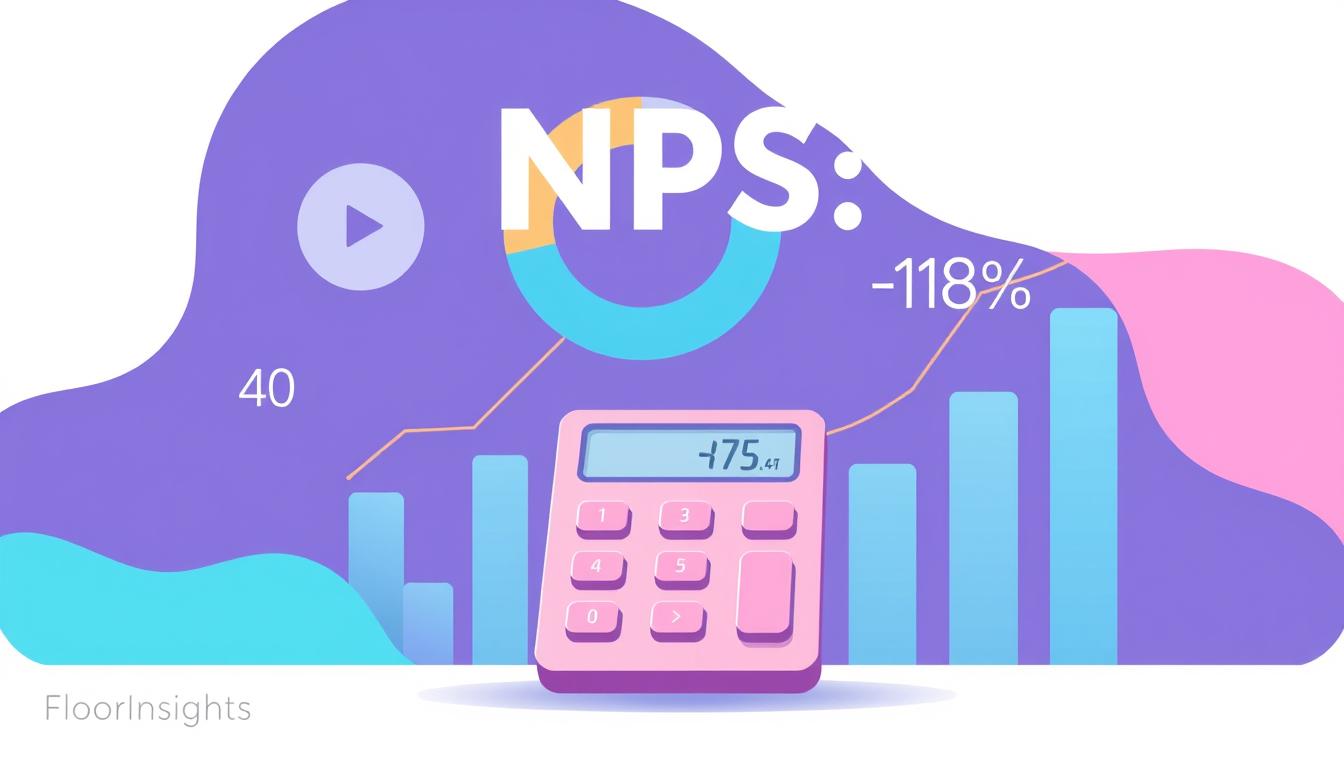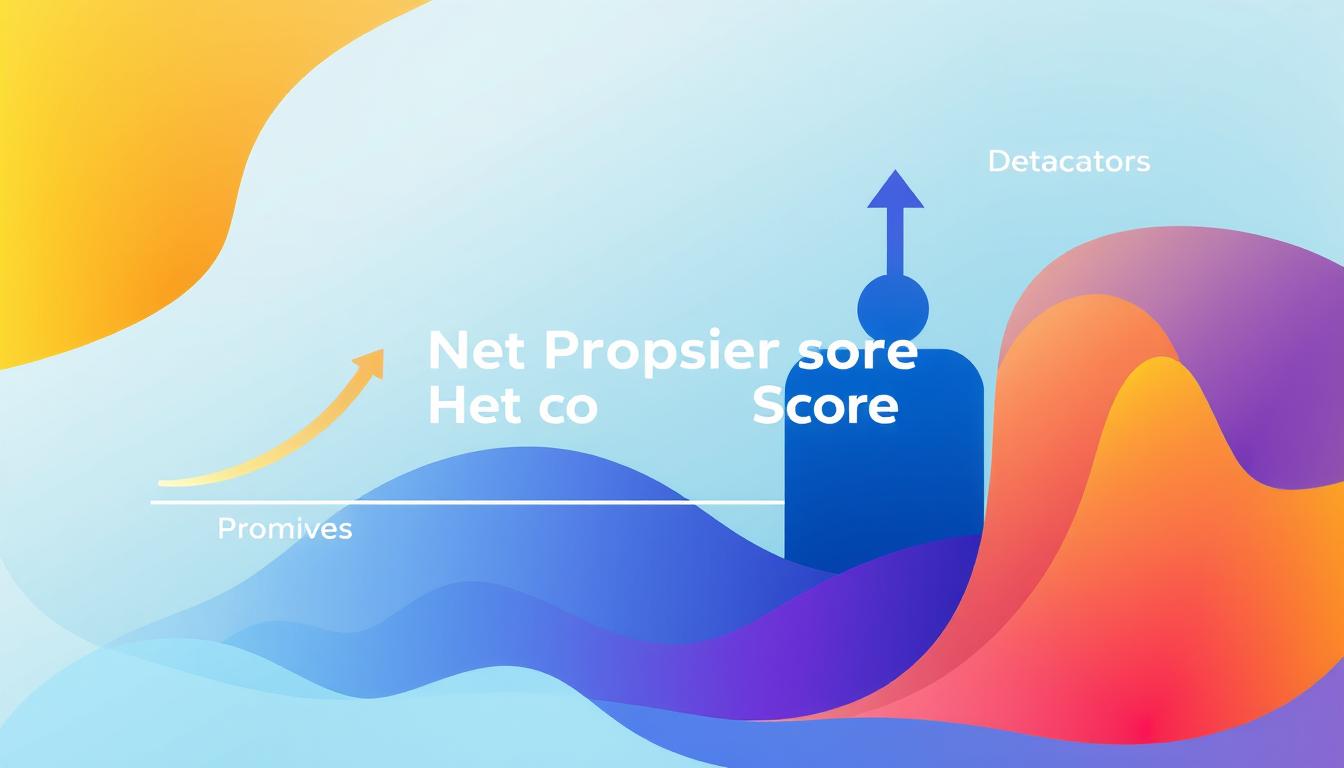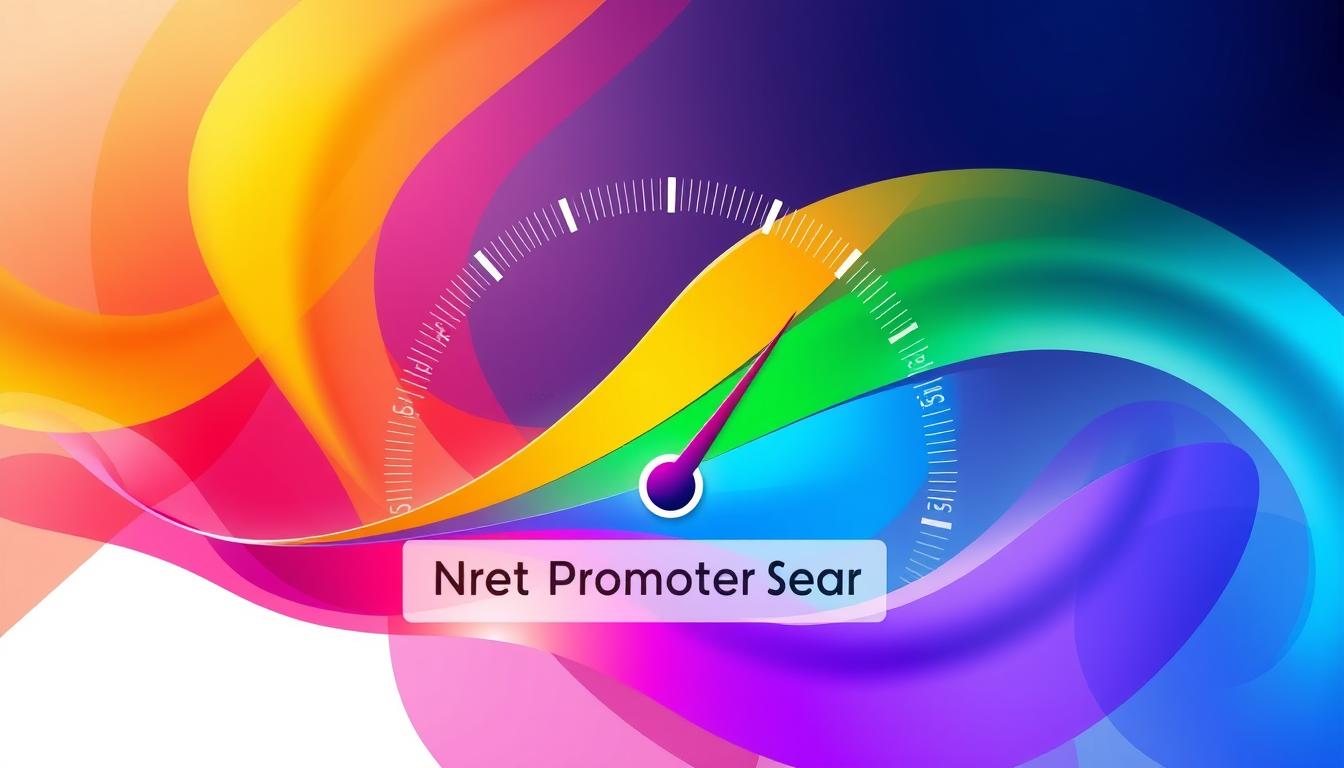In the ever-evolving landscape of franchise businesses, understanding the Net Promoter Score (NPS) is crucial for fostering customer loyalty and enhancing franchise growth. NPS serves as a vital indicator of how customers perceive a brand, reflecting their likelihood to recommend it to others. By establishing realistic NPS benchmarks, we can gauge our performance and identify areas for improvement. As we navigate the local franchise market, it becomes increasingly important to prioritize NPS to drive sustainable growth and maintain a competitive edge in India.
Key Takeaways
- NPS is a key measure of customer loyalty for franchise businesses.
- Establishing clear NPS benchmarks is essential for assessing satisfaction.
- High NPS scores correlate with positive franchise growth.
- Understanding local markets can enhance NPS outcomes.
- Customer feedback is vital for improving services and offerings.
Understanding NPS and Its Importance for Franchise Businesses
The Net Promoter Score (NPS) serves as a critical tool for measuring customer loyalty and satisfaction within franchise businesses. By assessing customer sentiment, NPS allows us to gauge how likely our clients are to recommend our services to others. This metric directly correlates with business performance, as satisfied customers tend to drive not only repeat purchases but also an influx of new clients through positive word-of-mouth.
Statistics reveal that franchises with high NPS scores often experience significant business growth. For instance, a recent study indicated that companies with an NPS over 50 enjoy 2.5 times more customer loyalty compared to those with lower scores. This data underscores the importance of prioritizing NPS for franchise growth, especially in a competitive marketplace like India.
In practical terms, understanding NPS empowers franchise owners to identify strengths and areas needing improvement. This actionable insight can transform customer interactions, consequently enhancing brand loyalty and long-term success. Implementing effective strategies to boost our NPS will not only benefit customer relationships but also drive sustainable growth for our franchises.
What Are Benchmarks in the Context of NPS?
In the realm of Net Promoter Score (NPS), benchmarks serve as essential reference points for evaluating customer satisfaction measurements. They help franchises gauge their performance against established NPS standards, allowing us to understand how we compare to industry peers. By utilizing NPS benchmarks, we can pinpoint areas requiring improvement and identify strengths that set us apart.
Benchmarks not only provide context for performance evaluation but also influence strategic decisions. The insights drawn from NPS benchmarks enable our franchises to make data-driven adjustments, ultimately enhancing customer loyalty and satisfaction. Knowing where we stand in relation to competitors reinforces our focus on continual improvement and customer-centric practices.
| Franchise Sector | Average NPS | Industry NPS Standard |
|---|---|---|
| Food & Beverage | 30 | 25 |
| Retail | 35 | 30 |
| Health & Fitness | 40 | 35 |
| Travel & Leisure | 32 | 28 |
This table illustrates various franchise sectors and their corresponding average NPS alongside the industry NPS standards. By reviewing these comparisons, we can identify where we excel and where there is potential for enhancement.
Evaluating NPS Benchmarks by Industry
Understanding NPS benchmarks across different industries is essential for franchise businesses aiming for growth. By comparing NPS by industry, we can gain insights into performance expectations that vary significantly among various franchise sectors. This information enables us to set realistic targets and focus on areas requiring improvement.
Comparison of NPS Across Different Franchise Sectors
Each franchise sector presents unique challenges and customer interactions that directly influence NPS. Here’s a comparison highlighting notable differences across sectors:
| Franchise Sector | NPS Benchmark | Key Factors Influencing NPS |
|---|---|---|
| Food & Beverage | 55 | Quality of food, service speed, and atmosphere |
| Retail | 62 | Product availability, store experience, and staff assistance |
| Service | 48 | Service reliability, responsiveness, and customer care |
This franchise sectors NPS comparison illustrates that businesses in retail often achieve higher scores, primarily due to consumer expectations regarding product quality and service efficiency.
Regional Variations in NPS Benchmarks
Regional variations in NPS can provide additional layers of understanding, especially within a diverse country like India. Cultural influences, local preferences, and economic conditions can shape customer experiences and, consequently, their willingness to recommend a brand.
- North India: Higher NPS in the food sector due to regional cuisine preferences.
- South India: Strong emphasis on service quality in retail leading to better NPS scores.
- East India: Growing popularity of service franchises, but NPS remains moderate.
- West India: Balanced scores across sectors, reflecting diverse consumer expectations.
By recognizing these regional variations in NPS, we can better tailor our business strategies according to customer expectations and cultural nuances.
Key Factors Influencing Net Promoter Score
When evaluating factors influencing NPS, two critical pillars often emerge: customer experience and brand reputation. Each of these elements plays a vital role in shaping the perceptions and behaviors of customers, ultimately affecting their likelihood to recommend a franchise. Understanding these NPS drivers enables us to develop strategies that enhance client loyalty and satisfaction.
Customer Experience as a Driving Force
Customer experience stands out as one of the most significant NPS drivers. It encompasses every interaction a customer has with a franchise, from initial contact through post-purchase support. Positive customer experiences typically lead to higher NPS scores. Research shows that franchises prioritizing customer service have a substantial advantage. Techniques such as personalized communication, timely responses, and quality service can dramatically improve overall satisfaction.
Franchise Brand Reputation and Its Impact
Brand reputation serves as another crucial factor influencing NPS. A strong reputation not only fosters trust but also encourages customers to share their positive experiences with others. Franchises that actively manage their online presence and engage with customer feedback often see a favorable impact on their brand reputation. This comprehensive approach can lead to increased customer loyalty and, consequently, higher NPS ratings.
Setting Realistic NPS Targets for Franchise Growth
Setting achievable NPS targets is crucial for our franchise’s growth trajectory. By focusing on realistic NPS benchmarks, we can ensure that our objectives align with both customer expectations and industry standards. This alignment strengthens our overall franchise growth strategies.
To effectively set NPS targets, we should consider several factors:
- Industry Standards: Analyze NPS data from similar franchises to establish a benchmark that reflects the competitive landscape.
- Customer Expectations: Gather feedback directly from our customers to understand their satisfaction levels and what they value most.
- Internal Capabilities: Assess our operational strengths and weaknesses to set targets that are ambitious yet achievable.
Utilizing a structured approach in setting NPS targets enhances our ability to monitor progress and make informed decisions. Here’s a table that outlines various franchise sectors along with their corresponding realistic NPS benchmarks:
| Franchise Sector | Realistic NPS Benchmark |
|---|---|
| Fast Food | 50-70 |
| Retail | 40-60 |
| Health & Fitness | 60-80 |
| Hospitality | 70-90 |
Incorporating these insights into our franchise growth strategies will ultimately enhance customer loyalty and drive business success. As we embark on this journey, it is essential to remain flexible and responsive to changes in customer preferences and market dynamics.
Measuring NPS: Choosing the Right Methodology
In the quest for excellence, measuring NPS stands as a cornerstone for franchise businesses aiming to enhance customer loyalty and satisfaction. Understanding the right NPS measurement methodologies is essential. This not only aids in collecting accurate data but also tailors the feedback process to the unique customer base of each franchise.
Several methodologies exist for measuring NPS, and our choice will depend on factors such as operational structure and customer engagement levels. Some effective franchise NPS strategies include:
- Surveys post-interaction to capture immediate feedback.
- Annual assessments to gauge long-term trends in customer perceptions.
- Focus groups that delve deeper into customer sentiments.
For example, quick feedback forms sent via email soon after a service interaction can yield valuable insights. On the other hand, a structured annual survey may reflect broader changes in customer sentiment over time.
To present a clearer picture, we can compare different methodologies as follows:
| Methodology | Frequency | Data Depth | Best For |
|---|---|---|---|
| Post-interaction Surveys | Immediate | Shallow | Quick feedback |
| Annual Surveys | Yearly | Deep | Long-term trends |
| Focus Groups | Quarterly | Very Deep | Customer engagement insights |

Choosing the appropriate methodology not only captures the voice of the customer but also informs strategic adjustments. By utilizing these methodologies, franchises can craft tailored approaches that resonate with their audience, leading to improved NPS outcomes and business success.
How to Calculate NPS Effectively
To effectively calculate NPS, we must first understand the NPS formula. The formula is straightforward: subtract the percentage of detractors from the percentage of promoters. This simple calculation allows us to gauge customer loyalty and satisfaction in our franchise operations.
First, we survey our customers using a straightforward question: “On a scale from 0 to 10, how likely are you to recommend our franchise to a friend or colleague?” Based on their responses, we categorize customers into three groups:
- Promoters (scores 9-10): Loyal customers who are likely to refer others.
- Passives (scores 7-8): Satisfied but unenthusiastic customers.
- Detractors (scores 0-6): Unhappy customers who may harm our brand.
Once we have gathered the survey data, we can calculate NPS using the following steps:
- Determine the total number of respondents.
- Calculate the percentage of promoters.
- Calculate the percentage of detractors.
- Apply the NPS formula (percentage of promoters – percentage of detractors).
Accurate data collection is pivotal for effective calculation. We should adopt franchise measurement strategies that ensure comprehensive data representation. This includes surveying a diverse customer base and conducting regular feedback sessions to remain in tune with customer sentiments.
Analyzing NPS Survey Results for Actionable Insights
We recognize the importance of analyzing NPS results to unlock valuable insights that drive business growth. Understanding the data from customer feedback mechanisms not only highlights where we stand but also guides us toward areas of improvement. With this knowledge, we can effectively implement changes that bolster customer satisfaction and loyalty.
Identifying Strengths and Weaknesses through Feedback
Effective feedback mechanisms can shed light on customers’ perceptions, allowing us to pinpoint our strengths as well as weaknesses. By categorizing feedback, we can better understand which aspects of our franchise resonate well with customers. This systematic approach to analyzing NPS results helps us capture critical data.
- Look for consistent patterns in feedback.
- Pay attention to recurring themes in customer comments.
- Utilize qualitative feedback alongside quantitative scores.
Implementing Changes Based on Customer Input
Once we have identified specific areas for enhancement, the next step involves translating these insights into actionable change. Engaging with customer suggestions fosters a culture of continuous improvement within our franchise. Harnessing customer input allows us to craft strategies that directly address our clients’ needs.
- Develop a plan of action based on insights gained.
- Prioritize initiatives that align with common feedback.
- Monitor the effectiveness of implemented changes through follow-up NPS surveys.
The Role of Net Promoter Score Software in NPS Management
The evolving landscape of franchise businesses places great emphasis on accurate and timely feedback from customers. Utilizing net promoter score software acts as a boon for franchises eager to enhance their franchise efficiency. This specialized software provides robust NPS management solutions that streamline the entire process of collecting, analyzing, and reporting NPS data.
By implementing net promoter score software, we can ensure a structured approach to understanding customer sentiment. key features of these solutions often include:
- Automated survey distribution to gather responses swiftly
- Real-time analytics that allow for immediate insights
- User-friendly dashboards for effective reporting
- Integration capabilities with existing business systems
These features culminate in a highly efficient system that supports franchise growth initiatives. The data-driven insights derived from the software empower franchise owners to make informed decisions, addressing customer concerns proactively. By prioritizing customer feedback through tailored NPS management solutions, franchises can establish a loyal customer base and improve overall performance.
In essence, investing in net promoter score software is a strategic move that can significantly enhance our ability to understand and respond to customer needs. This investment not only streamlines our operations but also positions us favorably in a competitive marketplace.
| Feature | Benefits |
|---|---|
| Automated Survey Distribution | Increases response rates and reduces manual effort |
| Real-Time Analytics | Faster adjustments based on current customer sentiment |
| User-Friendly Dashboards | Simplifies data interpretation for quicker decision-making |
| Integration Capabilities | Allows seamless connection to other business tools for holistic insight |
NPS Survey Platforms: Choosing the Best Fit for Your Franchise
For franchise businesses looking to improve customer loyalty and drive growth, selecting the right NPS survey platforms becomes crucial. The complexity of managing customer feedback demands a sophisticated approach. A thorough understanding of the key features in these platforms is essential for making an informed decision. We can help guide you on what to focus on when choosing a platform that meets the needs of your franchise.
Key Features to Look for in an NPS Survey Platform
When we explore the various options, several key features stand out as critical for our franchises:
- User Interface: An intuitive design enables easier navigation, helping us gather responses efficiently.
- Data Analytics Capabilities: Robust analytics help in identifying trends and making data-driven decisions based on collected feedback.
- Customer Support: Reliable customer support ensures our issues are resolved promptly, allowing us to maintain focus on our core operations.
- Customization Options: The ability to tailor surveys to align with our brand enhances engagement and response rates.
Integrating NPS Survey Data with Business Intelligence Tools
Integrating NPS data with business intelligence tools provides comprehensive insights into customer sentiments and expectations. This integration allows us to bring together disparate data sources, transforming raw feedback into actionable intelligence. By fusing NPS data with customer demographics, purchasing patterns, and sales performance, franchises gain a holistic view that aids in strategic planning. Here is an overview of these integration benefits:
| Integration Type | Benefits |
|---|---|
| CRM Integration | Personalizes customer interactions based on NPS data. |
| Marketing Tools | Enhances targeted marketing campaigns through feedback analysis. |
| Dashboard Reporting | Provides real-time visualization of NPS trends. |
| Data Warehousing | Centralizes NPS data for deeper analysis across multiple business functions. |
Successful Case Studies: High NPS in Franchise Businesses
Analyzing high NPS case studies reveals key insights into the practices of successful franchises. Each franchise implements unique strategies to boost customer loyalty and satisfaction, leading to impressive NPS scores. One compelling NPS success story is that of Dunkin’ Donuts, which emphasizes customer feedback integration into their decision-making processes. Through consistent engagement, they cultivated an environment that responded directly to their customers’ needs.
Another notable example is Chick-fil-A. This successful franchise focuses heavily on staff training and customer service excellence. They have garnered a loyal customer base, benefiting from high levels of satisfaction reflected in their NPS. Their strategic approach in understanding and improving customer experiences sets them apart in the competitive landscape.
To highlight these achievements, we can summarize several high NPS case studies in a structured format:
| Franchise | NPS Score | Key Strategies |
|---|---|---|
| Dunkin’ Donuts | +60 | Customer feedback integration, menu innovation |
| Chick-fil-A | +78 | Staff training, dedication to customer service |
| Subway | +50 | Customization options, fresh ingredient focus |
| Marriott Hotels | +70 | Personalized services, loyalty programs |
These NPS success stories emphasize the importance of implementing feedback mechanisms that resonate with customer expectations. Not only do these franchises achieve high NPS scores, but they also set the standard for others in the industry. Adopting similar practices can empower more businesses to foster customer loyalty and drive growth.
Conclusion
In examining the NPS significance for franchise businesses, we have unpacked the critical elements that contribute to effective Net Promoter Score benchmarks. These insights collectively reinforce the necessity for franchises to adopt robust NPS strategies aimed at enhancing customer experience. We observed that the variations across different franchise sectors and regions indicate the need for tailored approaches to measurement and analysis.
Moreover, by understanding the key factors influencing NPS, including customer experience and brand reputation, we can effectively set realistic targets that align with our growth ambitions. The effective application of NPS methodologies empowers us to analyze feedback meticulously, guiding us toward actionable improvements and operational excellence.
As we look forward to the future growth of our franchises, leveraging these strategic insights will be paramount. By fostering a culture of customer-centricity through refined NPS practices, we can significantly enhance loyalty, leading to sustained profitability and success in a competitive landscape.
FAQ
What is Net Promoter Score (NPS)?
Net Promoter Score (NPS) is a widely used metric that measures customer loyalty and satisfaction based on their likelihood to recommend a franchise to others. It serves as an indicator of overall franchise performance and customer sentiment.
How can we measure our franchise’s NPS?
What is a good NPS benchmark for franchise businesses?
How do we calculate NPS?
To calculate NPS, we subtract the percentage of detractors (customers who score 0 to 6) from the percentage of promoters (those who score 9 to 10). The formula is: NPS = (% Promoters – % Detractors).
What factors influence our franchise’s NPS?
Key factors influencing our NPS include the overall customer experience, brand reputation, and the quality of our products or services. Focus on enhancing these aspects to drive a higher score.
Can we improve our NPS through feedback?
Yes, analyzing feedback from NPS surveys allows us to identify strengths and weaknesses in our service. Implementing changes based on this feedback can help us enhance customer satisfaction and improve our score over time.
What are some effective NPS survey platforms?
There are several NPS survey platforms available, such as SurveyMonkey, Qualtrics, and Typeform. When selecting one, we should look for key features like ease of use, data analytics capabilities, and integration with other systems.
How can technology enhance our NPS measurement?
Utilizing net promoter score software can streamline data collection, automate reporting, and provide valuable insights into customer sentiment. This technology can help us make informed decisions to improve customer loyalty.
What role does NPS play in franchise growth?
A high NPS is strongly correlated with customer loyalty, which in turn drives repeat business and word-of-mouth referrals. By prioritizing NPS, we can foster sustainable franchise growth and enhance our competitive advantage.






